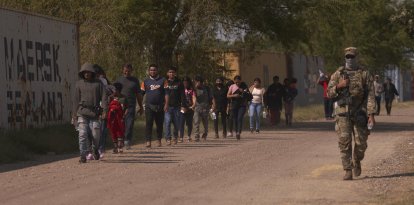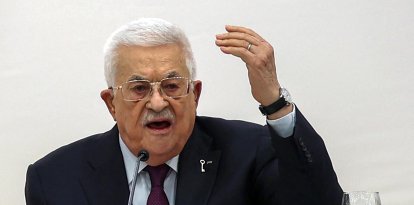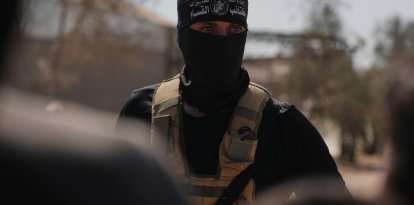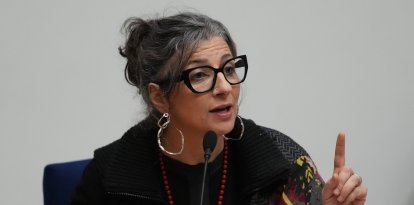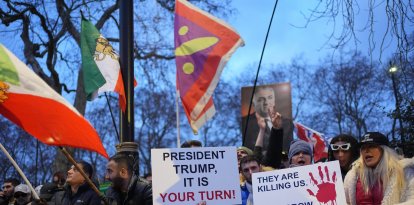Riots Again in France
There are "two Frances" facing each other. One is violent, ready to riot at the first opportunity, encouraged by political parties who see it as an electoral reservoir. The other, still in the majority, is dignified and peaceful, outraged by the behavior of these young people of immigrant origin -- but who remain silent and do nothing.
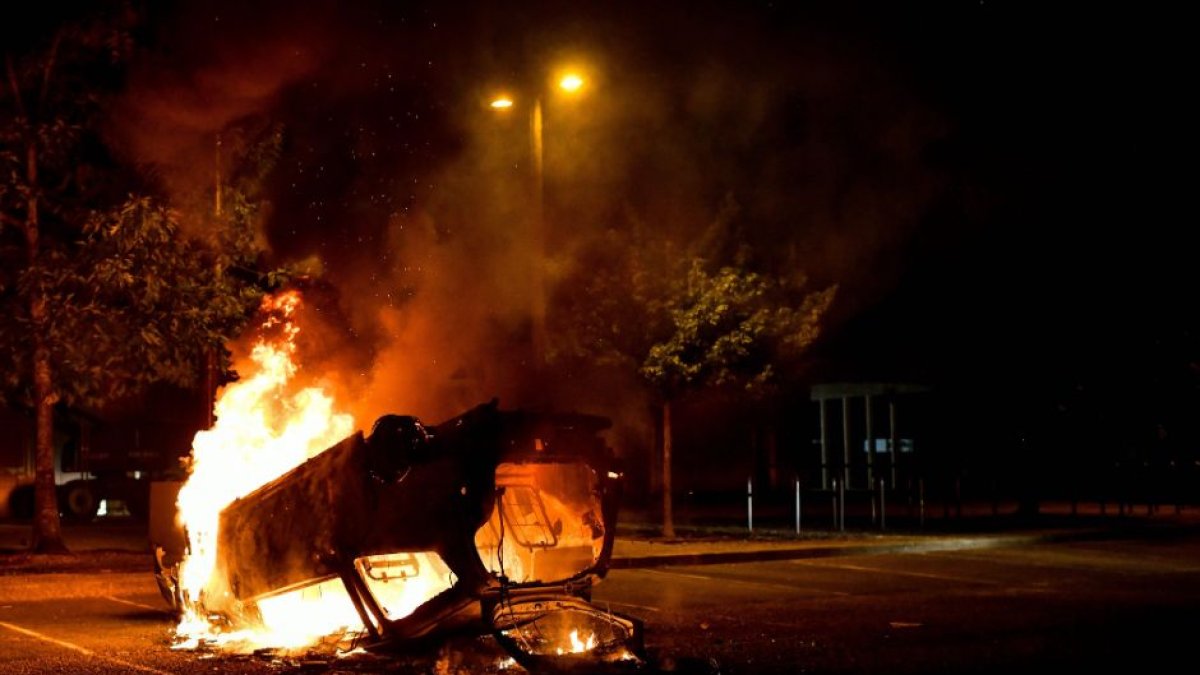
(Cordon Press)
Following the killing of a 17-year-old boy, France is once again the scene of riots that reflect the gulf between traditional France and the suburbs -- the result of immigration over the last 40 years.
Nahel Merzouk was killed by police. He was being chased in Nanterre, near Paris, by two policemen on a motorcycle for traffic violations and refusal to stop the car he was driving. After Merzouk was forced to stop the car due to traffic congestion, the policemen approached his car and drew their weapons. Merzouk then drove off, at which point one of the policemen fired his weapon at the car, fatally wounding Merzouk. If Merzouk had followed the orders of the police, he would not have died.
In 2021, there were 27,809 refusals to obey police orders in France -- one every twenty minutes or so. At just 17 years of age, Merzouk already had 15 entries in his criminal record, for rebellion against police officers, use of falsely-numbered car plates (he was driving a Mercedes A-class with Polish plates that day), driving without insurance, the use and sale of narcotics, and more.
His death nevertheless triggered a wave of rioting across France, not just in the Paris suburb of Nanterre, where the events took place. Images show war scenes with Molotov cocktails, fireworks, and burning garbage dumpsters, cars and buildings. Stores were looted, and 269 police stations were attacked. School and cultural centers were targeted and in some instances, ransacked and destroyed. Even Fresnes Prison, the country's second-largest, was attacked. 1,105 buildings were set on fire and 808 police officers injured.
These events are in more the tradition of 1789, the start of the French Revolution.
The young people who are shooting at the police, smashing and looting say they are angry about Merzouk's death, but it is hard to see how this violence and looting, often against property that directly benefits the inhabitants of these neighborhoods -- schools, bus shelters and streetcars -- can "appease their anger" or lead to anything positive.
The policeman who shot Merzouk has been charged with voluntary manslaughter. Disregarding the presumption of innocence, and thereby damning the policeman, President Emmanuel Macron, who is supposed to be the guardian of institutions, described the shooting as "inexplicable and inexcusable", even while the investigation was still in its early stages. The President of the National Assembly called for a minute of silence to observe Merzouk's death.
These responses -- skirting due process at the highest levels of government -- show the fear that the suburbs instill in those in power: the fear of a generalized conflagration, the fear of another death, the fear that control of the situation is slipping away, the fear of the inability to control these uprisings or the root causes that breed them.
Some of these suburbs have long since become lawless zones, or rather zones of "alternative law," where drug kingpins and Muslim imams now rule the roost, and where the police only move in force from time to time. In some neighborhoods, drug dealers have set up physical obstacles that make it difficult for the police to gain access when they decide to intervene by force, when the authorities can pretend that they still control something.
A few months ago, France was moved by the murder of Lola, aged 11, by an Algerian woman who had been ordered to leave the country. This murder by a woman who should not have been in France, but whom, as in the majority of similar cases (only 16% of removal orders are enforced) in which the government refused to deport someone, moved the whole of France, but the French people remained calm. They did not demonstrate, they did not destroy anything, there was no minute's silence in the National Assembly and Macron did not consider the facts "inexplicable and inexcusable".
The difference between the two situations? Lola was a little white girl killed by an illegal immigrant in France. The left did not protest. Right-wing parties were outraged and saw the tragedy as a sign that the state had given up on uncontrolled immigration.
In Nanterre, the victim was a youth of immigrant origin killed by a white policeman trying to stop him. Despite his delinquent past, young people of immigrant origin in the suburbs see Merzouk as a martyr, the victim of a racist society. The powerful far-left party La France Insoumise ("France Unbowed") is adding to the fire by refusing to call for calm, and seems to hope that this tragedy will be its "George Floyd moment", triggering a street revolution in France in the tradition of 1789.
More fundamentally, this gulf between the two Frances bears witness once again to the failure of immigration policy over the past 40 years, with massive, uncontrolled legal and illegal immigration continuing, resulting in millions of young people who are legally French but who do not feel French and who may even hate France.
The death of Merzouk can in no way justify the riots of recent days. In the short term, holding accountable whoever breaks the law is probably the only solution. There need to be serious, severe sentences for defacing and destroying property and inflicting personal harm. French judges, however, tend to be lax (here, here and here), and find excuses for juvenile delinquents, whom they often see as "victims". In addition, Macron has barely begun to build capacity for the 15,000 additional prison places he promised.
It is necessary to deal with the cause -- excessive and uncontrolled immigration -- both legal (through family reunification and the right of asylum) and illegal. When you are faced with a leak in a boat that is on the verge of sinking, as French society is, you not only have to have to bail out the water, but also plug the breach. Not tackling the immigration issue would serve no purpose: the same causes would produce the same effects.
Macron, however, has always been reluctant to tackle immigration. Let us not forget, he comes from the left and was a minister under Socialist President François Hollande. The Macron government apparently hopes that the situation will calm down, and over the next few months, they will probably try less and less to re-establish order and security in these neighborhoods, as they come increasingly under the dominion of an alternative law. The police, who are subjected to attacks of unprecedented violence, will be even more reluctant to intervene. It is therefore to be feared that nothing will fundamentally change, and that the French taxpayers will pay in vain to rebuild all that has been destroyed... until the next uprising. The rioters have already won and France is more divided than ever.
There are "two Frances" facing each other. One is violent, ready to riot at the first opportunity, encouraged by political parties who see it as an electoral reservoir. The other, still in the majority, is dignified and peaceful, outraged by the behavior of these young people of immigrant origin -- but who remain silent and do nothing.
France seems slowly heading for civil war.













